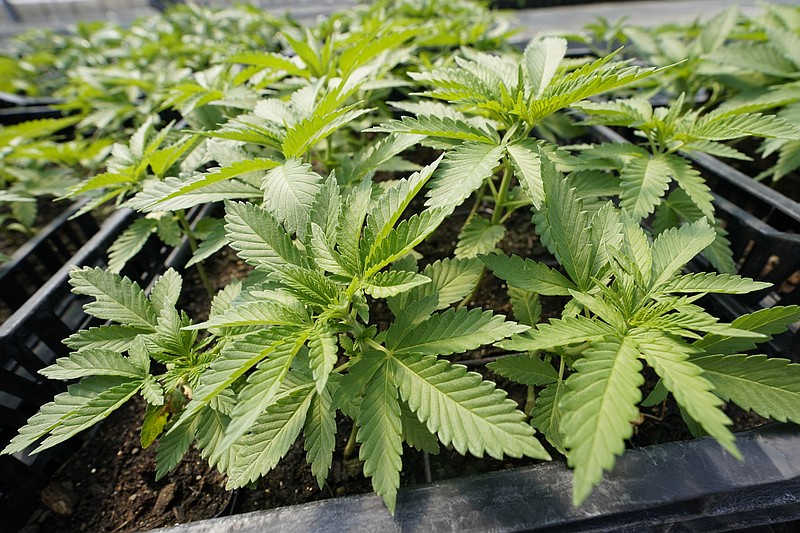Yes, recreational marijuana is on Arkansas' Nov. 8 general election ballot.
But votes for or against proposed Issue 4, which would legalize use by adults, may not count.
That fact might not be clear, given recent reports that friends and foes of the initiated constitutional amendment continue to collect serious funding for their respective campaigns.
Nevertheless, such campaigns could be for naught.
It depends on how the Arkansas Supreme Court rules in a pending lawsuit. For now, the issue is on the Arkansas ballot conditionally, by order of the Supreme Court.
Just last week, Secretary of State John Thurston, at the court's prodding, officially declared the petitions insufficient due to the state Board of Election Commissioners' not having certified the ballot title and popular name. It was the latest twist in legal maneuvering over the proposed ballot question.
Collecting signatures is but one of the hurdles in the process to get any initiative to the ballot. Next comes the timely submission of the petitions to the secretary of state, who must verify the validity of the signatures and the adequacy of the petition.
Then, under a change in former law, the state Board of Election Commissioners must certify the proposed ballot title. That's where Issue 4 hit a roadblock. The commission refused.
Commissioners said the ballot title should explain that the amendment would eliminate a cap on how much THC, the main psychoactive compound in marijuana, can be in marijuana-infused drinks and food. The existing medical marijuana amendment, passed in 2016, had a cap.
That's one of the many things about Issue 4 that voters will really need to understand. It amends the medical marijuana amendment.
Not the least of the changes is a provision that automatically gives existing medical marijuana growers and sellers licenses to grow and sell adult use, or non-medical, marijuana.
There are additional licenses available in a lottery, but those companies already in the medical marijuana business will be able to produce or sell the drug for non-medical use by adults, too.
It's no wonder a lot of the contributions to the campaign for Issue 4 have come from those existing license holders. Removing the current limitation that they may grow and sell only for medical purposes only would open up a huge new market.
It's also not surprising the campaign is funding the ongoing court challenge that will determine whether votes on Issue 4 eventually get counted.
Responsible Growth Arkansas, the political action committee behind Issue 4, filed the lawsuit in early August, asking the state's high court to let the issue remain on the ballot while the court reviews the matter.
The court agreed and is still reviewing whether the Board of Election Commissioners should have certified the ballot title.
Responsible Growth Arkansas had led a wildly successful petition drive to put the issue on the ballot, collecting well over twice the required 89,151 signatures, submitting more like 192,000.
Two opposing committees have intervened in the lawsuit. One is Safe and Secure Communities and the other is Save Arkansas from Epidemic.
The proposed amendment has also found a vocal foe in Gov. Asa Hutchinson, who announced his opposition recently and encouraged law enforcement groups to do so, too. Hutchinson is a former federal prosecutor and head of the U.S. Drug Enforcement Administration in President George W. Bush's administration.
The Arkansas Family Council, a conservative lobbying group, has also expressed strong opposition.
Nonetheless, the proposed amendment appears to be popular with many Arkansas voters.
Recent polling by Talk Business & Politics and Hendrix College found that voters support the proposed recreational marijuana amendment by a 2-to-1 margin.
Of likely voters, 58.5 percent favored the initiative while 29 percent opposed it. The remaining 12.5 percent said they were undecided.
Any way you figure it, those numbers suggest the amendment will pass -- if the votes get counted.

